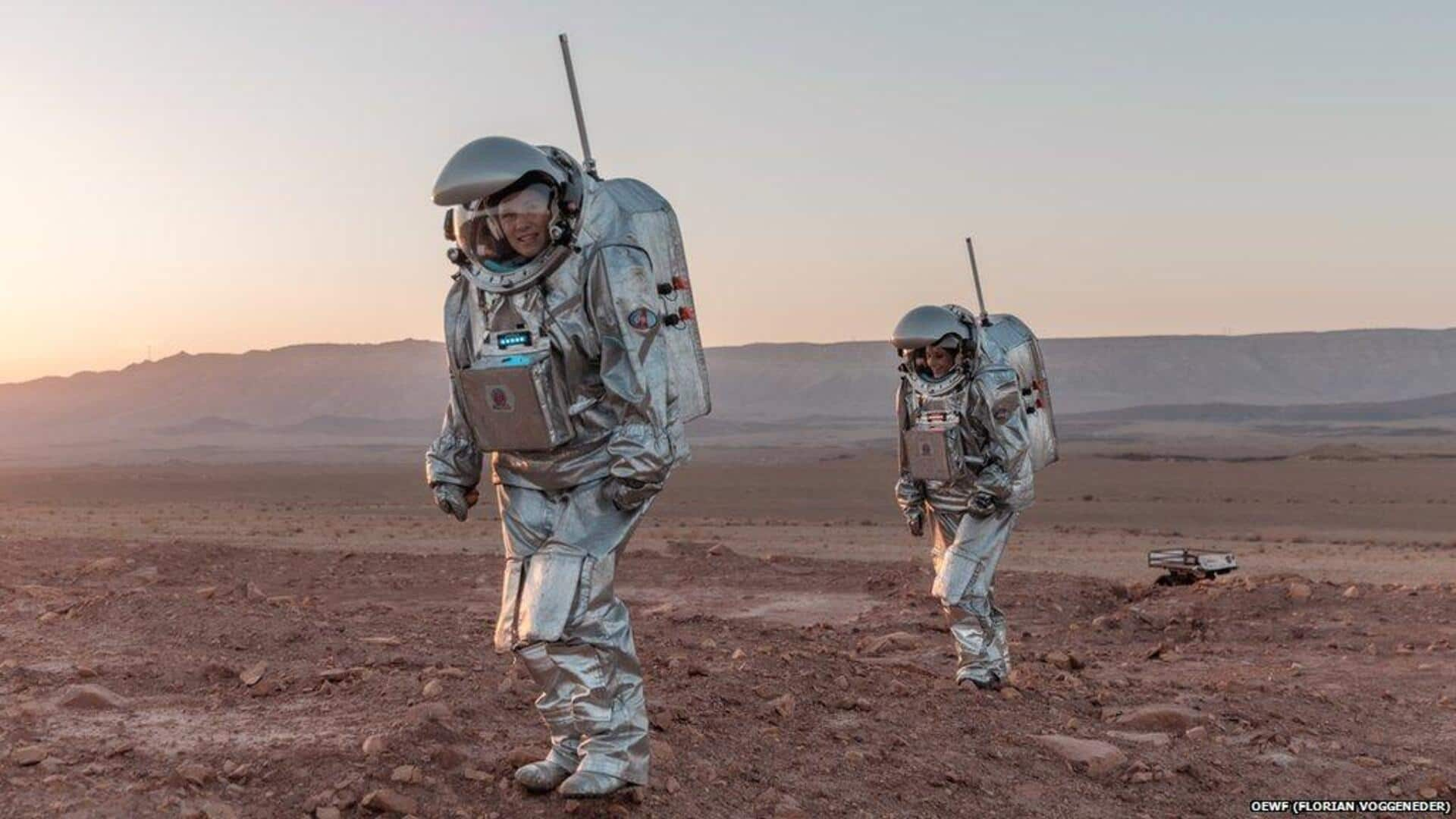
Four analog astronauts begin year-long Mars simulation mission on Earth
What's the story
NASA has launched a year-long simulated Mars mission, with four analog astronauts entering the Crew Health and Performance Exploration Analog (CHAPEA) habitat at Johnson Space Center. The crew members, Ross Elder, Ellen Ellis, Matthew Montgomery, and James Spicer, will stay in this 1,700-square-foot facility until October 31 next year. Their stay is part of NASA's preparation for future crewed missions to the Red Planet.
Simulation details
CHAPEA mission: A testbed for Mars exploration
The CHAPEA mission replicates the harsh conditions of Martian life, including resource scarcity, isolation, equipment failures, and a 22-minute communication delay. This delay mimics the time it takes for signals to travel between Earth and Mars. The crew will carry out high-tempo simulated Marswalks in spacesuits outside the habitat, navigate a simulated Martian landscape with red sand, maintain their living quarters, conduct robotic tasks, exercise regularly and even grow crops.
Research significance
CHAPEA mission: A crucial step for future space exploration
NASA's Human Research Program considers the CHAPEA mission vital to mitigate health and performance risks of spaceflight beyond low-Earth orbit. Sara Whiting, the program's project scientist, said the insights gained from this simulation will inform actual mission planning, habitat and vehicle design. It will also provide essential resources to support astronauts traveling to the Moon, Mars, and beyond.
Health insights
Data from CHAPEA mission to inform future decisions
Grace Douglas, the principal investigator for CHAPEA, stressed that the data collected during this mission will guide NASA's decisions about astronaut health and mission safety. The crew will also encounter simulated Mars mission stressors such as prolonged isolation, communication delays, and potential equipment failures. This way, researchers can study their adaptation and responses to these challenges.
Ongoing research
CHAPEA mission: A series of simulations for Mars exploration
The latest mission is the second in a series of CHAPEA simulations, with the first 378-day mission concluding successfully on July 6, 2024. Together, these missions are crucial in preparing humans for long-duration exploration needed for Mars settlement. The data from these studies will help develop protocols and countermeasures to tackle the complex realities of Mars exploration.